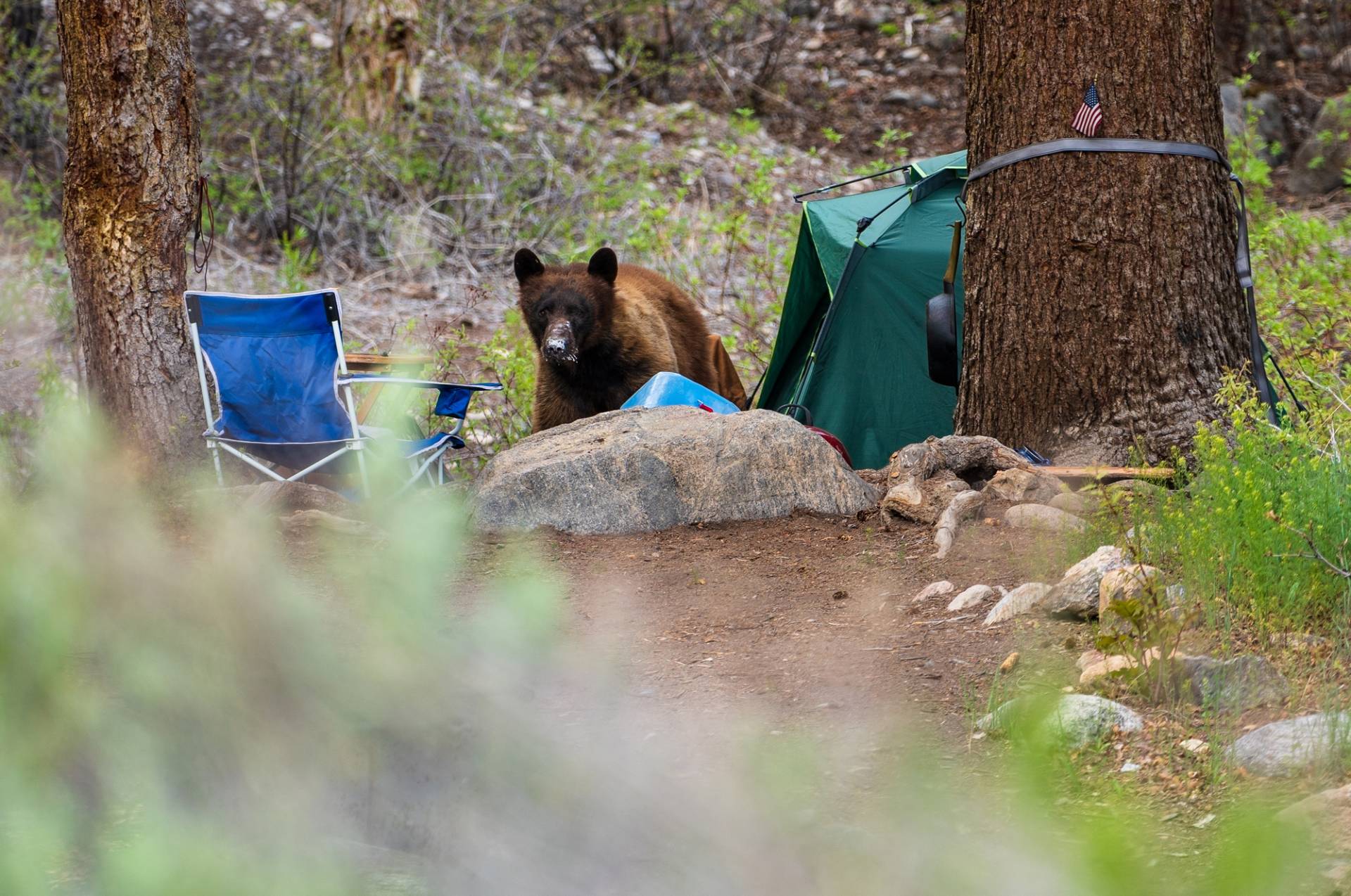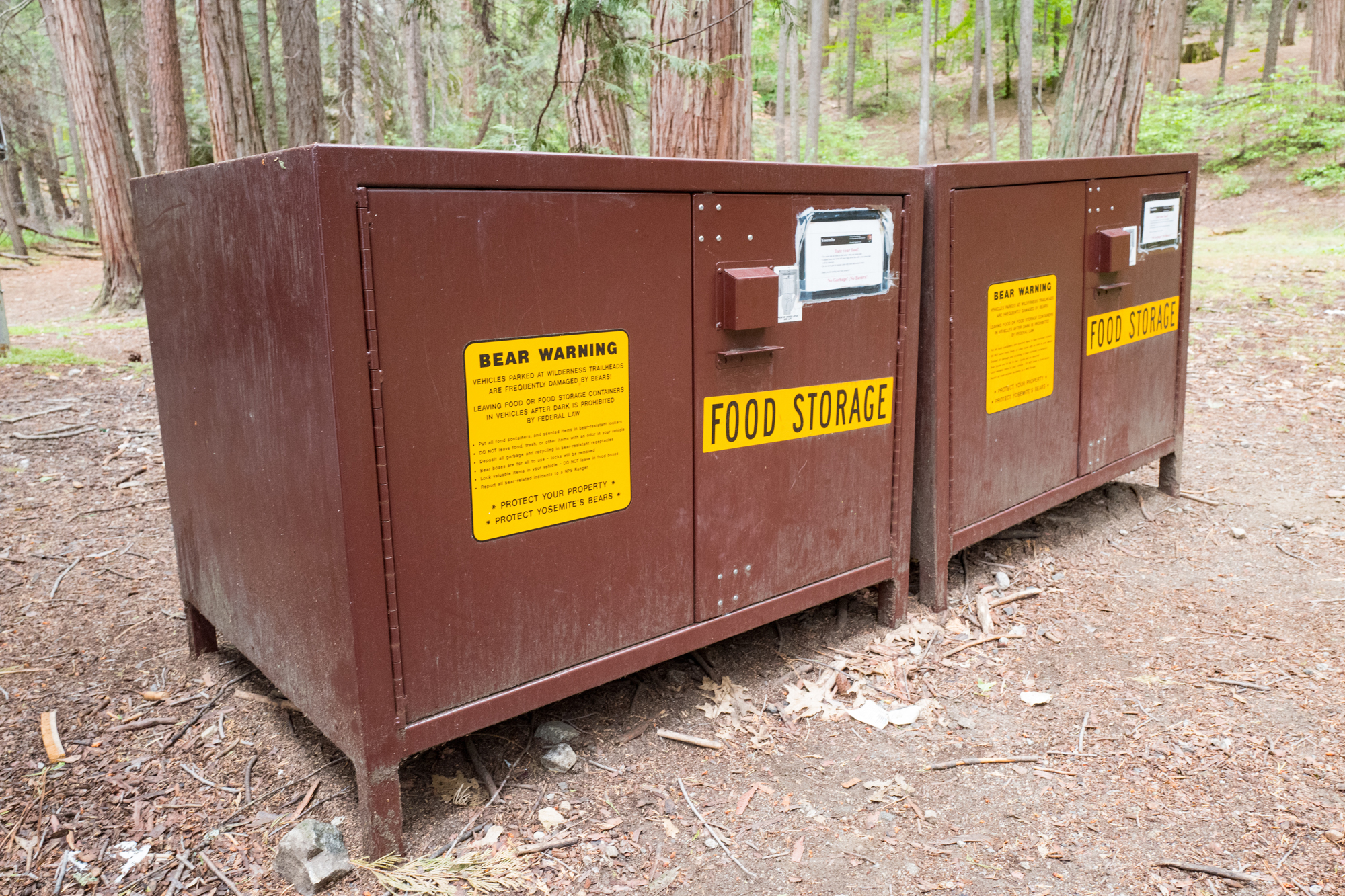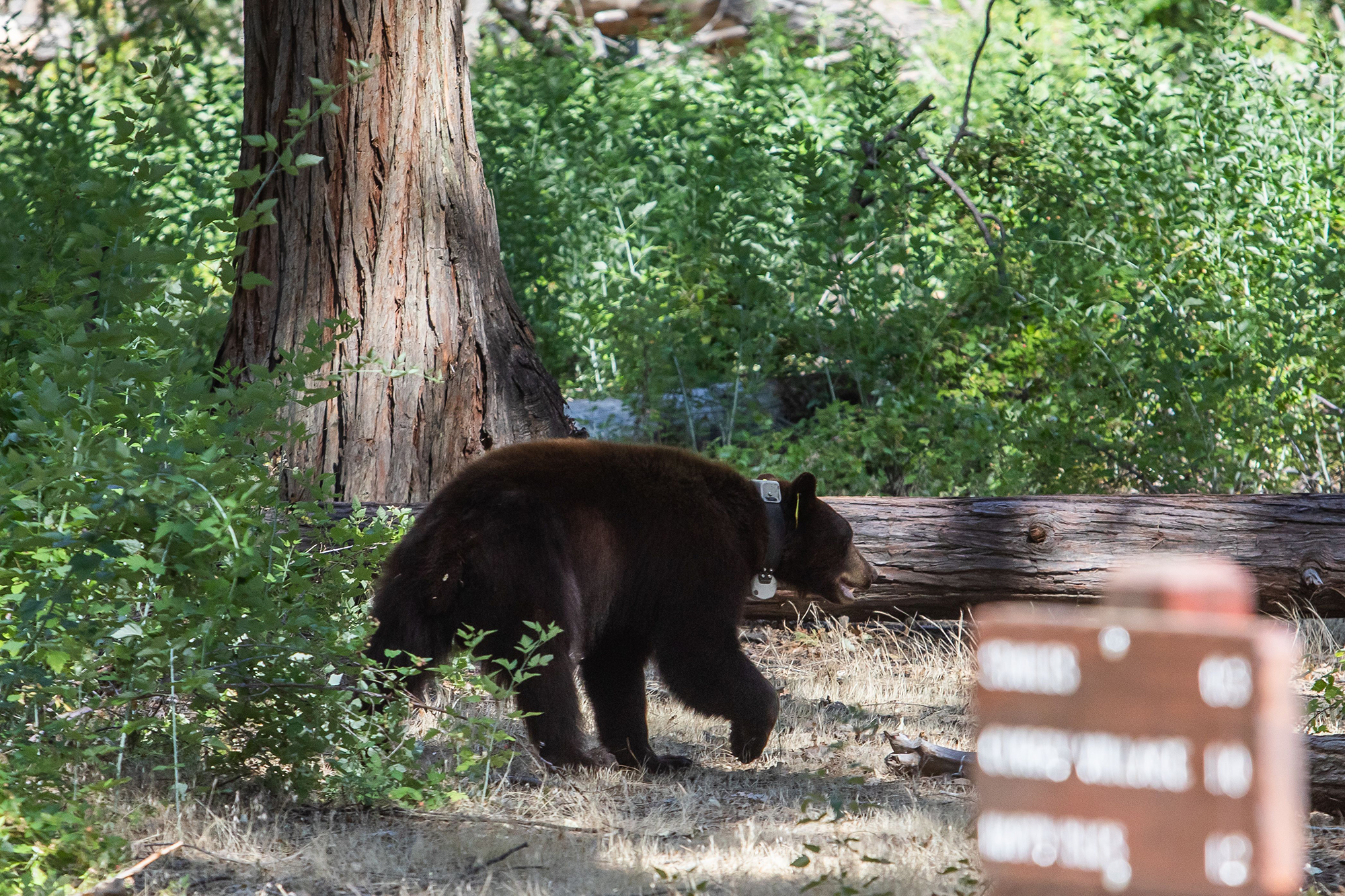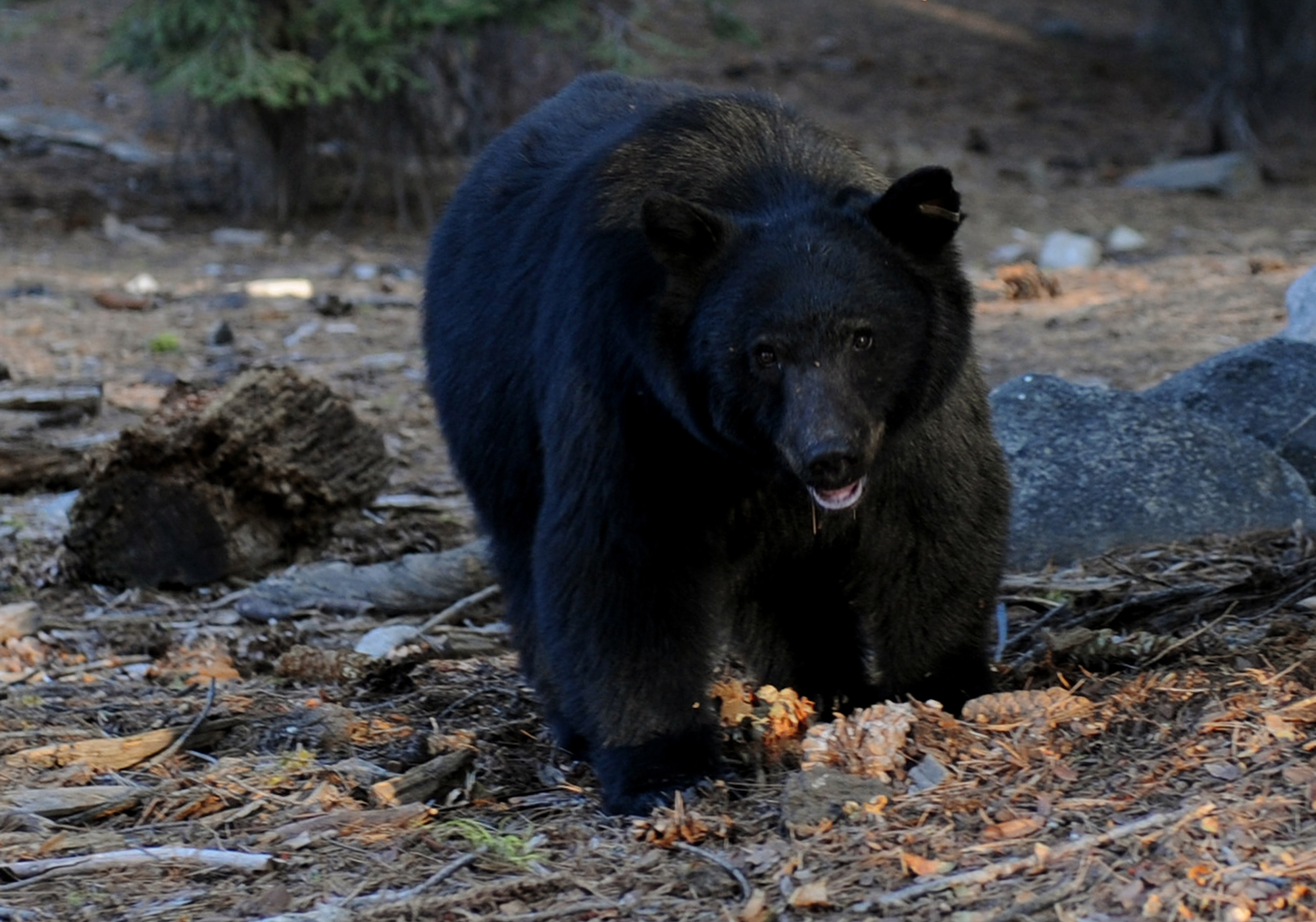T
his year’s Fat Bear Week in Alaska’s Katmai National Park – an annual event allowing fans to vote online for their favored portly bear – is drawing to a close.
And while these huge creatures you can see on the Fat Bear Week live-cams are grizzlies and not the black bears we have here in California, the behavior on display every year in the contest is shared among all kinds of bears: the process known as hyperphagia, which sees the animals relentlessly seek out extra food to fuel up for their winter hibernation.
This biological motivation to seek out more food in the fall doesn’t just make for bulky bears. It also means that if you’re enjoying some late-season camping, you might be more likely to encounter a bear in your campground – one who’s even more food motivated and bold than usual.
For campers in Northern California, especially the Lake Tahoe region, encountering a black bear for the first time can be a rite of passage. But even if you’ve done your homework on bear encounters and patiently listen every time to the bear advisories given at the campground check-in, the first time a bear wanders into your campsite in search of food can be a jarring – even nerve-wracking – moment. Especially if you didn’t really expect to see a bear during your trip.
“We definitely have a denser population of bears” in the Lake Tahoe region compared to other parts of the state, said Sarinah Simons, human-bear management specialist at the California Department of Parks and Recreation. “And so if you come and camp in Tahoe, you’re probably going to see a bear.”
The rare but alarming headlines about bears – the confirmation of the state’s first documented fatal black bear attack on a human in 2023, an ultra-marathon runner’s collision with a bear in Yosemite this July – can be unsettling, especially for newer campers. But “we can’t demonize bears for just existing and sharing space with us,” said Simons, who spends much of her days fostering good relations between campers and bears in the region.
So whether you’re heading to somewhere like Tahoe on a camping trip this weekend or just want to be fully prepared without anxiety in the moment, keep reading for everything to know about encountering a bear in your campsite for the first time – including how to successfully drive a bear away, the mistakes many campers make when locking up food, how to talk to young campers about bear encounters, using bear spray and what to do if a bear comes to investigate your tent in the middle of the night.
Or jump straight to:
- Why is using my car for storage a bad idea?
- If a bear comes into my campsite, how do I scare it away?
- What are some non-food items that might still attract a bear?
- What should I do if I accidentally bring food into my tent overnight?
- How should I act differently if I see a bear on the trail?
- How do I know if a bear is being aggressive?
- Should I bring bear spray camping?
Going camping? Don’t skip the refresher on bears
Remember, the bear species you’ll see camping in California are black bears – there haven’t been grizzly bears in California since the 1920s – although in reality, you’ll see black bears in many shades including brown, cinnamon and blonde.
And even if you grew up in bear country, or have been exploring the Tahoe area for decades, you might still be taken aback by the boldness and persistence of today’s black bears in California, said Simons.
“We have an evolving situation,” she said. “People that grew up camping in a particular area over the years … the bears have changed over those years. And the bear behavior has changed over those years.” Simons said she hears from “old timer campers” in Tahoe that they remember seeing a bear once a summer decades ago, but “now, it’s multiple bears a day.”
The increasing presence of humans in once-wild areas means that more bears are now venturing into built-up spaces like campsites and neighborhoods in search of the food and trash they know humans bring. So when you enter a campground in bear country, you’ll get what Simons calls the “bear spiel” from the staff at the entrance checking you in – and you should really listen to what they have to say, she advises. Jump straight to tips on bear behavior.
Remember: Bears care about food, not humans…
In essence, a bear is a “walking nose with a big, hungry belly,” said Simons – albeit a belly that can weigh up to 400 lbs. And while bears can be audacious in their quest for your food, they don’t want to hurt you for it.
“Even a bear that we would consider a ‘’Tahoe bear’ that eats garbage every day, goes to the neighborhoods and sees humans on a daily basis? Ultimately, they just don’t want anything to do with us,” she said. “If we don’t have food, they don’t care.”
“And I know that that can feel really strange, especially with an animal that’s so big, that has amazing, powerful claws, that has sharp teeth,” Simons acknowledged. “But I think we have to get back to a place where we just recognize that they’ve been here a lot longer than we have.”
“They’re not here to hurt us. They’re not here to scare us. If anything, we’ve encroached on their habitat and made it even harder for them to just be wild bears.”
…but bears should never be allowed to snag human food
Just because bears really want our food doesn’t mean they should get it. On the contrary, not only are bears “perfectly capable of foraging for food out in the wild,” said Simons, feeding a bear – whether accidentally or purposefully – will teach it that food is worth pursuing humans for.
Over time, this can make bears lose their instinctive fear of humans and even begin to act aggressively in pursuit of a food reward. This is the source of the phrase “a fed bear is a dead bear” – because a bear that’s no longer afraid of humans can start to pose a physical danger, and at worst, may have to be euthanized to prevent it from attacking humans. And even if a bear does not ultimately become physically aggressive, losing a natural fear of being in human spaces makes bears more vulnerable to being killed by vehicles on the road.




